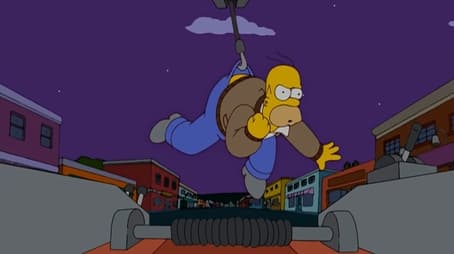
Sorry, we have not watched this yet.

Homer takes a job as a tow-truck driver, and Marge hires a service that claims to make babies less clingy. Both decisions have unexpected consequences.
Sorry, we have not watched this yet.